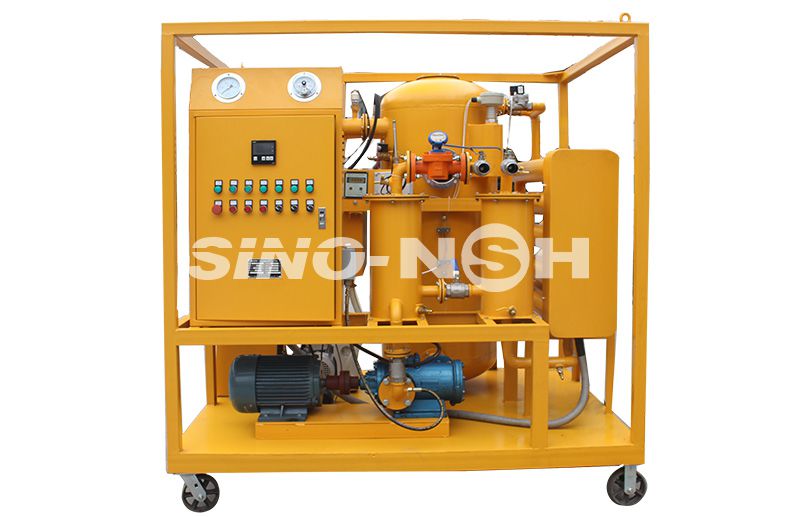E-mail seo@sino-purification.com

Time:2025-02-06 10:48:44 Reading volume:
Choosing an efficient and durable industrial oil purifier is crucial for maintaining the quality of your oil, ensuring the smooth operation of your machinery, and reducing maintenance costs. Here are some key factors to consider when selecting an industrial oil purifier:
1. Type of Oil and Contaminants
- Oil Type: Determine the type of oil you need to purify (e.g., hydraulic oil, lubricating oil, transformer oil, etc.).
- Contaminants: Identify the primary contaminants (e.g., water, solid particles, sludge, gases) that need to be removed.
2. Purification Technology
- Filtration Methods: Choose a purifier with the appropriate filtration technology (e.g., mechanical filtration, centrifugal separation, vacuum dehydration, electrostatic precipitation).
- Efficiency: Consider the efficiency of the purifier in removing specific contaminants. For example, centrifugal purifiers are effective for removing water and solid particles, while vacuum dehydrators are excellent for removing dissolved water and gases.
3. Flow Rate and Capacity
- Flow Rate: Ensure the purifier can handle the required flow rate of oil. This is typically measured in liters per hour (L/h) or gallons per hour (GPH).
- Capacity: Consider the total volume of oil that needs to be purified and choose a purifier with an appropriate capacity.
4. Build Quality and Materials
- Durability: Look for purifiers made from high-quality, durable materials that can withstand industrial environments.
- Corrosion Resistance: Ensure that the materials used are resistant to corrosion, especially if the purifier will be used with oils that contain corrosive elements.
5. Ease of Maintenance
- Accessibility: Choose a purifier that is easy to disassemble and maintain. Components like filters and seals should be easily accessible for cleaning and replacement.
- Maintenance Requirements: Consider the frequency and complexity of maintenance tasks. A purifier with low maintenance requirements will save time and reduce downtime.
6. Automation and Control
- Automation: Consider purifiers with automated features such as self-cleaning filters, automatic water drainage, and real-time monitoring. Automation can improve efficiency and reduce the need for manual intervention.
- Control Systems: Look for purifiers with advanced control systems that allow for precise control over the purification process.
7. Energy Efficiency
- Power Consumption: Evaluate the energy consumption of the purifier. Energy-efficient models can significantly reduce operational costs.
- Heat Generation: Consider the amount of heat generated during operation, as excessive heat can affect the quality of the oil and the lifespan of the purifier.
8. Certifications and Standards
- Compliance: Ensure the purifier complies with relevant industry standards and certifications (e.g., ISO, CE, UL). This ensures that the purifier meets safety and performance requirements.
9. Manufacturer Reputation and Support
- Reputation: Choose a purifier from a reputable manufacturer with a proven track record in the industry.
- Support: Consider the availability of technical support, spare parts, and after-sales service. Good customer support can be invaluable in case of issues or maintenance needs.
10. Cost and ROI
- Initial Cost: While the initial cost is important, consider the total cost of ownership, including maintenance, energy consumption, and potential downtime.
- Return on Investment (ROI): Evaluate the potential ROI by considering the benefits of improved oil quality, reduced machinery wear, and lower maintenance costs.
11. User Reviews and Recommendations
- Feedback: Look for user reviews and recommendations from other industrial users. Real-world feedback can provide insights into the performance and reliability of the purifier.
12. Customization Options
- Tailored Solutions: Some manufacturers offer customized solutions tailored to specific industrial needs. If you have unique requirements, consider a purifier that can be customized to meet them.
By carefully considering these factors, you can select an industrial oil purifier that is efficient, durable and well-suited to your specific needs. This will help ensure optimal performance, extend the life of your machinery, and reduce overall operational costs.
